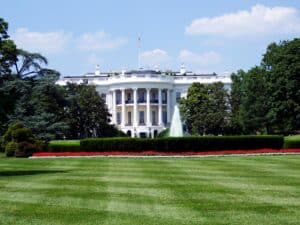Title: Bridging the Gap: Exploring Poverty and Equality
In a world of abundance and technological advancement, the persistence of poverty remains a stark reality. Poverty is not just a lack of financial resources; it encompasses a deprivation of basic needs, opportunities, and dignity. At the heart of combating poverty lies the quest for equality – the notion that every individual deserves equitable access to resources, opportunities, and rights. In this blog, we delve into the intricate relationship between poverty and equality, exploring the challenges, progress, and pathways toward a more just and inclusive society.
Understanding Poverty:
Poverty manifests in various forms, from absolute deprivation of food, shelter, and healthcare to relative disparities in income, education, and social status. It affects individuals, families, and entire communities, perpetuating cycles of disadvantage and marginalization. Factors such as economic instability, lack of education, discrimination, and inadequate social safety nets contribute to the prevalence of poverty across the globe.
Moreover, poverty intersects with other social issues, exacerbating its impact. Gender inequality, for instance, disproportionately affects women and girls, limiting their access to education, healthcare, and economic opportunities. Similarly, systemic racism perpetuates disparities in employment, housing, and criminal justice, deepening the roots of poverty within marginalized communities.
Equality as a Catalyst for Change:
Equality serves as a fundamental principle for addressing poverty at its core. It entails recognizing the inherent worth and dignity of every individual, regardless of their background or circumstances. Achieving equality requires dismantling barriers to access and opportunity, promoting fairness and justice in policies and institutions, and fostering inclusive societies where everyone can thrive.
Education emerges as a powerful equalizer in the fight against poverty. By providing quality education to all children, regardless of socioeconomic status, we empower individuals with the knowledge and skills needed to break free from the cycle of poverty. Investments in healthcare, infrastructure, and social protection systems are equally crucial, ensuring that no one is left behind in the pursuit of a better life.
Furthermore, promoting economic equality through progressive taxation, fair wages, and inclusive economic policies can narrow the gap between the rich and the poor, fostering shared prosperity and social cohesion. Empowering marginalized groups, including women, minorities, and persons with disabilities, is essential for building a more equitable society where everyone has the opportunity to thrive.
Challenges and Progress:
Despite significant progress in reducing global poverty over the past few decades, formidable challenges persist. Economic inequality continues to rise in many parts of the world, widening the divide between the haves and the have-nots. Moreover, the COVID-19 pandemic has exacerbated existing inequalities, disproportionately affecting vulnerable populations and pushing millions into poverty.
Addressing poverty and inequality requires coordinated efforts at the local, national, and international levels. Governments, civil society organizations, businesses, and individuals all have a role to play in advancing social justice and human rights. Collaboration, innovation, and solidarity are essential for creating sustainable solutions that uplift the most marginalized and vulnerable members of society.
Pathways Forward:
As we navigate the complexities of poverty and equality, several key strategies emerge:
- Invest in education, healthcare, and social protection systems to empower individuals and communities.
- Promote inclusive economic growth through equitable policies and investments in infrastructure and technology.
- Address systemic discrimination and marginalization through legal reforms, affirmative action, and social awareness campaigns.
- Strengthen social safety nets to provide a lifeline for those facing economic hardship, particularly during times of crisis.
- Foster partnerships and collaborations between governments, civil society, and the private sector to drive collective action and impact.
Ultimately, the pursuit of poverty eradication and equality requires a commitment to justice, empathy, and solidarity. By recognizing our shared humanity and working together toward a common vision of a more just and inclusive world, we can build a future where poverty is no longer a barrier to human flourishing. Together, let us bridge the gap and create a more equitable and sustainable future for all.





